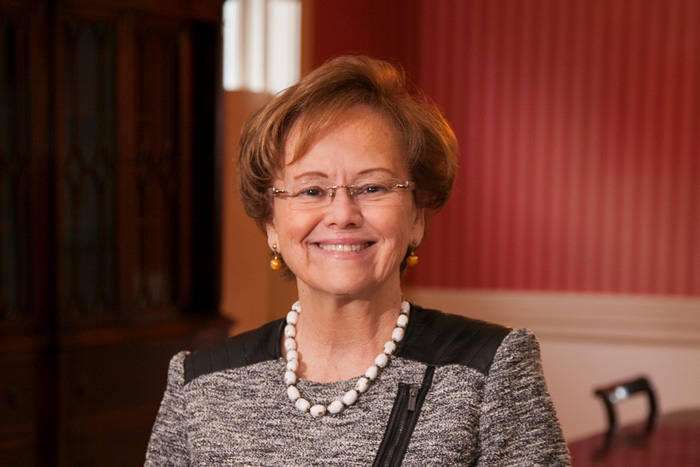Why Dickinson

Margee Ensign
by Margee Ensign, President
Let me begin by thanking interim President Neil Weissman and all the senior staff and faculty for their hard and productive work during this transitional year. Under their leadership, Dickinson has gone from strength to strength, and these are the people who have made it possible. I am truly excited to join them, and to join one of America’s great institutions of higher learning.
As I contemplated coming home to the U.S. after seven years in Africa, where we were confronted with the threat of terrorist violence and its aftermath—hunger, disease and trauma—I had to think long and hard about what I wanted to do. It was critically important to find a place to which I could give my passionate support, a place I could truly believe in, a place engaged in forging a better future for us all. I looked for a place that was providing a genuinely useful education and working for the common good. This is a Dickinson education.
At a time of great turbulence and conflict in the U.S. and in the world, it is critically important that those of us in higher education rethink what we are doing, and why. The last few years have shown us that there are few certainties. Many of the trends we had thought intrinsic to the modern world—trends such as the growth of democracy, of growing and widely distributed prosperity and security, of greater tolerance and internationalism—are not so certain after all. Instead, we find that we disagree. We disagree about the very nature of our problems. We disagree about policy. We even disagree on what constitutes “fact”!
What we can agree upon, however, is that never in the history of our species have the challenges been greater or the stakes higher.
Dickinson College has been a leader in higher education throughout much of the history of America. Its global approach to education, its emphasis on sustainability, its readiness to innovate, its humane values and its insistence on providing a “useful” education are, I believe, what the United States and the world desperately need. This is why I sought to join you.
Perhaps I am naive—and certainly I am optimistic—but I remain convinced that education is the key to meeting the challenges we face: the challenges of war and peace, of different and often conflicting cultures, of sustainable economic growth and equity, of enormous numbers of people on a small and finite planet. I am convinced that it is only through honest intellectual work that we can understand the nature of our challenges. Only through creative scholarship can we devise and implement solutions to our complex problems, and only through rigorous and applied education can we give our young people the useful skills and insights required to forge the common good.
The visionary founder of Dickinson, Benjamin Rush, knew that education had to be “useful,” and that it had to be inclusive. He wanted his college to be active in shaping a new and different sort of country, and in educating the citizens to build and govern it. His vision and emphases are as important today as they were in 1783. This is the sort of education to which I have dedicated my life. It is an honor to join with you in the next phase of Dickinson’s development.
Learn more
Published July 11, 2017